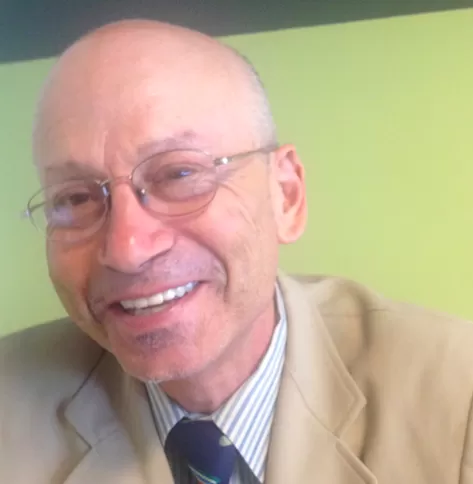Irvin Dawid discovered Planetizen when a classmate in an urban planning lab at San Jose State University shared it with him in 2003. When he left San Jose State that year, he took with him an interest in Planetizen, if not the master's degree in urban & regional planning.
As a long-time environmental activist, he formed the Sustainable Land Use committee for his local Sierra Club chapter and served six years on the Bay Area Air Quality Management District’s Advisory Council from 2002-2008. He maintains his interest in air quality by representing Sierra Club California on the Clean Air Dialogue, a working group of the Calif. Environmental Dialog representing business, regulatory and public health/environmental interests.
Major interests include transportation funding, e.g., gas taxes, vehicle miles traveled (VMT) fees, road tolls and energy subsidies that lead to unlevel playing fields for more sustainable choices.
He hails from Queens (Bayside) and Long Island (Great Neck); received an AAS in Fisheries & Wildlife Technology from SUNY Cobleskill and a B.S. from what is now Excelsior College.
After residing for three years on California’s North Coast, he’s lived on the San Francisco Peninsula since 1983, including 24 years in Palo Alto. Home is now near downtown Burlingame, a short bike-ride to the Caltrain station.
He’s been car-free since driving his 1972 Dodge Tradesman maxi-van, his means to exit Long Island in 1979, to the junkyard in 1988.
Major forms of transportation: A 1991 'citybike' and monthly Caltrain pass, zone 2-2. "It's no LIRR, but it may be the most bike friendly train in America."
Irvin can be reached at [email protected]
TIFIA Amount Increases & Eligibility Expands - Too Much?
In the coming days readers will learn more about America's new transportation funding plan MAP-21, which will guide surface transportation planning through 2014. In this piece, Tanya Snyder centers on changes to the popular TIFIA lending program.
Energy Shortage Constrains India's Economic Growth
Energy shortages in coal, natural gas, and diesel fuel are constraining India's growth. At the heart of the shortages are government subsidies that keep prices low, state-run monopolies that are unable to increase production, and costly imports.
California High Speed Rail 'Plan B' Pushed In State Senate
The alternative plan directs a sizable percentage of the initial $6 billion allocation to the Bay and LA regions to upgrade existing commuter lines at the expense of greater investment in the Central Valley. Funding plan may be determined by July 6.
The Incredible, Deficit-Reducing Transportation Bill
Just how does a transportation bill that doesn't increase fuel taxes or introduce new user charges, and maintain the same level of spending reduce the deficit by $16.3 billion? Ask the Congressional Budget Office.
Census: Cities Growing Faster Than Suburbs
Historically the one-year data may be an aberration as suburbs have outgrown cities for every decade since the 1920s. It may be as much a consequence of the recession and housing bust as a preference for urban living, but builders are responding.

























